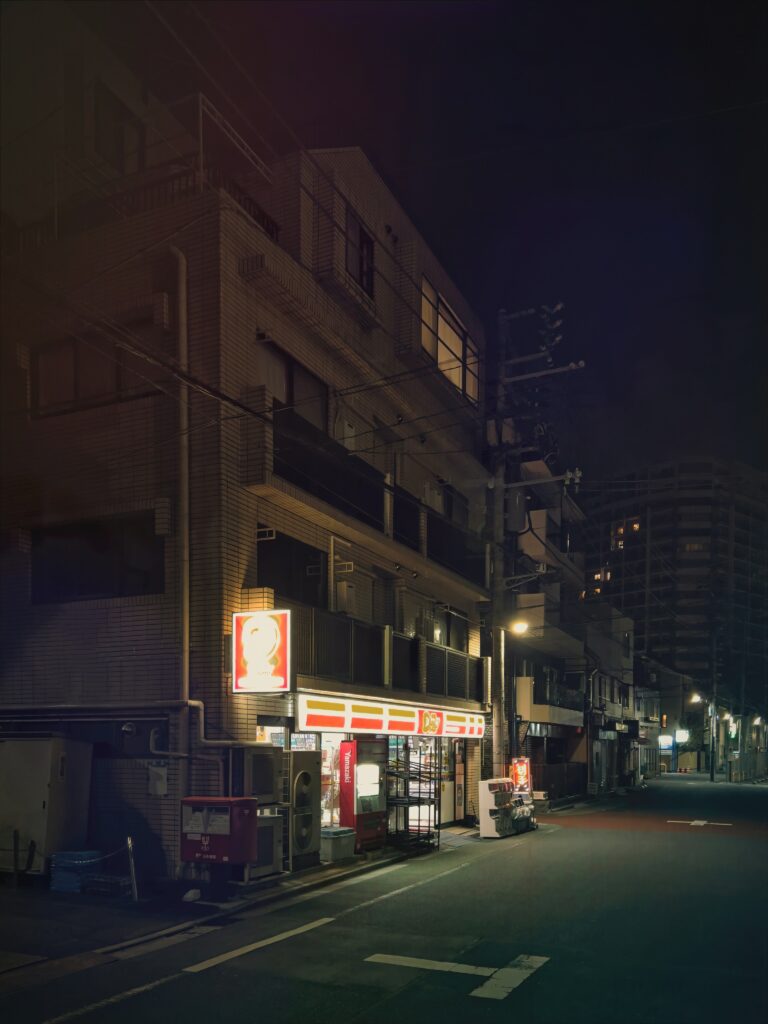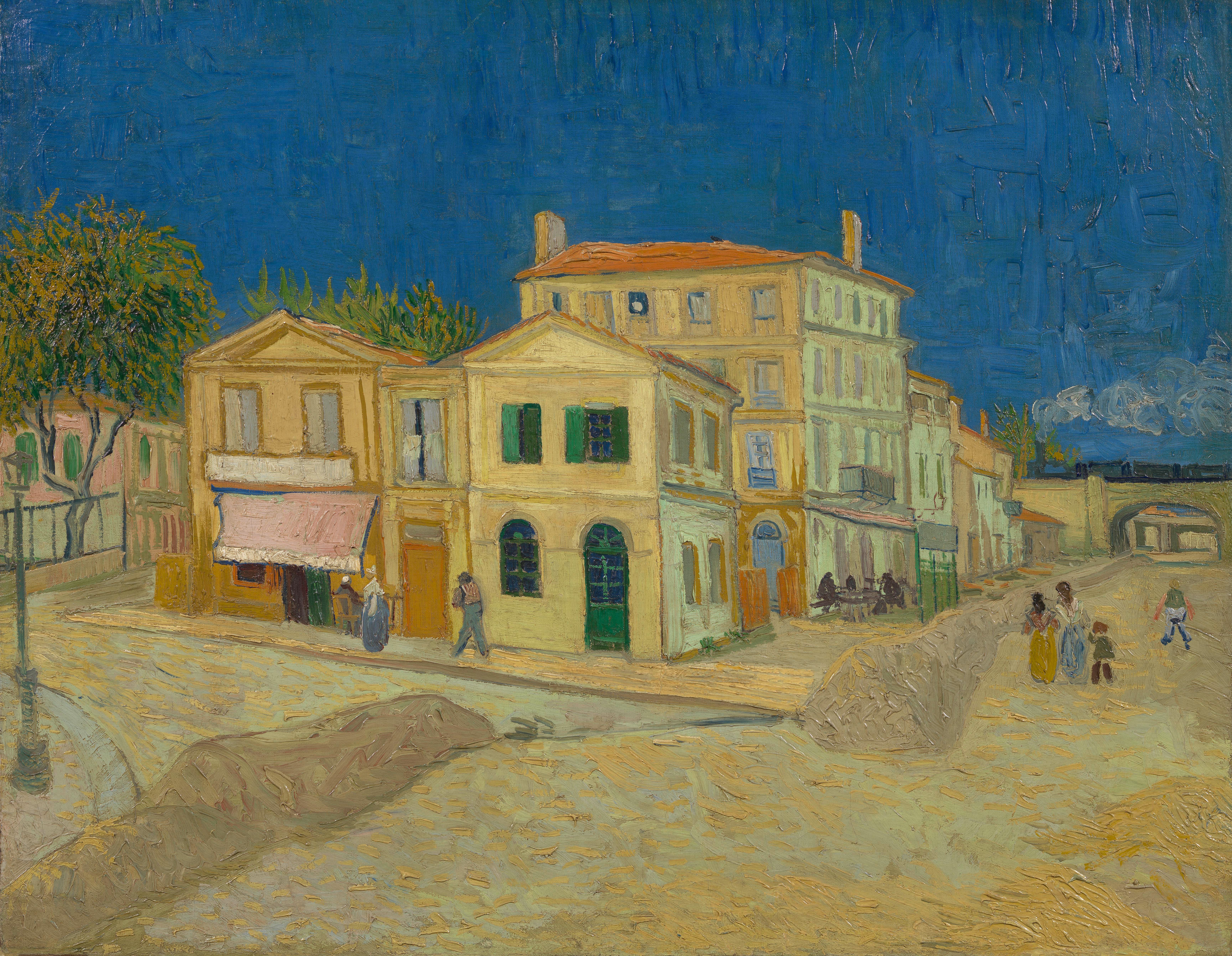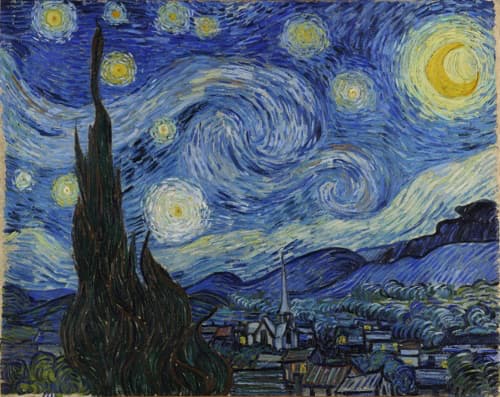
Are fulfillment and happiness only found when good things happen to us? Let’s see how the bible answers that question.
I want you to know, brothers, that what has happened to me has really served to advance the gospel, so that it has become known throughout the whole imperial guard and to all the rest that my imprisonment is for Christ. And most of the brothers, having become confident in the Lord by my imprisonment, are much more bold to speak the word without fear. Some indeed preach Christ from envy and rivalry, but others from good will. The latter do it out of love, knowing that I am put here for the defense of the gospel. The former proclaim Christ out of selfish ambition, not sincerely but thinking to afflict me in my imprisonment. What then? Only that in every way, whether in pretense or in truth, Christ is proclaimed, and in that I rejoice.
Philippians 1:12-18
コンビニ人間 Konbini Ningen

Life in the box of Smile Mart was filled with satisfying sounds for Akutagawa prize winner Sayaka Murata. The jingle of customer coins, the movement of cold beverages. She was fully aware of how those sounds connected to her customer’ desires and was happy to meet those needs as a convenience store clerk. It made her happy. Like REALLY happy :^) 18 years full of happiness.
So happy in fact, that she didn’t want to advance. She was comfortably in control. She was in her happy place. It was only when society’s eyes motioned for her to move on from her conbini life towards the pursuit of traditional happiness (boyfriend, hope of a family, respectable career) that she found she didn’t fit in ‘outside the box’. She returned for the freedom of her happy place.
Our Happy Place

We know that after an interesting journey, the main character in a story often returns to good circumstances that make them happy. But in the real world, we can’t always go back to our happy place.
What do I need to find happiness? Happiness is hard to find apart from the freedom God gives because life is full of ups and downs. We don’t always understand why things happen the way they do. Have you ever spent a lot of time trying to create comfortable circumstances only to see them change quickly? Have you ever felt stuck in unchanging circumstances?
Comparing Circumstances
Whether circumstances change quickly or never seem to change at all, it’s only natural to compare ourselves with others and their circumstances. What do we do if we don’t control our circumstances as we might want to? Christ frees us from our circumstances, so we must not look to them for happiness.
Maybe you never had a place stocked with good circumstances that made you happy. Even if we do return to our happy place, happiness isn’t always there waiting for us. What if it’s out of stock? Or on a shift change?
Free for Life
If my happiness is chained to good circumstances, then Christ must free me to rejoice in every circumstance.
To fill in our understanding, consider that Paul was chained in prison every day in our text. Little sunlight…lots of prison guards. Yet, he was happy. How’s that possible? How can we find fulfillment and happiness?
Finding Fulfillment & Happiness
Fulfillment and happiness are found when:
- Christ frees us from our need for control.
- Christ frees us from our need to compare.
- Christ frees us from our need for comfort.
First, Christ frees us from our need for control. Second, Christ frees us from our need to compare. Third, Christ frees us from our need for comfort.
When Christ frees us, we can wave goodbye to asking why bad things happen to us. When Christ frees us, we’re no longer comparing ourselves to others. When Christ frees us, we’re not stuck looking for comfort in any circumstance.
Free from Control
Here is the first way he frees us.
First, Christ frees us from our need for control. The Philippians championed Paul’s ministry. No other church supported him as consistently as they had. In the letter to the Philippians Paul wrote about their generous financial partnership that we looked at last week. In our text today, Paul shares openly about his present circumstances in a Roman prison. The Philippians probably wondered why Paul, God’s chosen apostle to the gentiles, was in prison for sharing the gospel.
Philippi was a Roman colony which meant that it was illegal to imprison Roman citizens like Paul without a trial. Skipping ahead to chapter 2 we see that his case was still being decided. Paul was imprisoned before being proven guilty, but he wasn’t asking why in this letter?
This wasn’t the first time he had been imprisoned without a trial. In fact on another occasion while in Philippi itself he did ask why he was imprisoned. He took it a step further and demanded that the government officials come and free him themselves, which they did.
But in our text today, we don’t see Paul asking why. Paul said, I want you to know, brothers, that what has happened to me has really served to advance the gospel, so that it has become known throughout the whole imperial guard and to all the rest that my imprisonment is for Christ.
God used what looked like ministry ending lockdowns in Paul’s life to free him from the need to control his circumstances because the gospel was advancing.
Why Ask Why?
Paul learned “Why am I in prison?” wasn’t the right question to ask.
Does that mean we can never ask why things happen to us? Not always. Some why’s we ask are okay. When someone innocent is arrested or a child dies, it’s natural to ask why. These are both consequences of living in a sinful and broken world.
Other “why’s” stop us from trusting or obeying God. We can’t always see the reason why something happened. Dwelling on questions we really don’t know the answers to drains our limited energy. God doesn’t owe us an explanation for things that happen to us.
But that doesn’t mean we enjoy feeling lost or powerless. We’d much rather feel in control of our lives, including our circumstances. Paul learned to trust in God’s goodness and that freed him from a need to control his circumstances.
He was free from anxiety, free to rejoice, even when he didn’t fully understand why something was happening, because he trusted in God’s wisdom more than his own. We have seen how this text demonstrates that God is in control. Christ freed Paul from calling out to others demanding freedom.
Japanese Bush Warbler
Parks have been happy places for me. Birds singing, kids running around playing sports, families with young toddlers enjoying the shade and a snack under the trees.
If you have heard beautiful sounds like we just did at a local park, it may be from the Japanese Bush Warbler (uguisu, 鶯). You’ll hear from them before you see them because they are locked away deep in the trees. The songs they sing publicly announce the fact that the uncontrollable seasons have changed…that spring has come.
Interestingly enough, if these birds are kept in a wooden box with a small paper window that only lets in a little light, they are actually encouraged to sing all the more.
Shifting Songs
Like the Japanese Bush Warbler announcing the change of seasons we don’t control, Paul’s letter publicly announced to the Philippians that his song had shifted from needing to call out against others injustices controlling his rights as a Roman citizen, to the freedom found in the gospel’s advance, irregardless of his circumstances. His season of needing to be in control had changed in favor of the gospel’s advance. Let’s look at how he did it and what that means for us.
Paul may not have been able to freely control his every movement while in prison due to being chained to a prison guard. Similarly, we are chained by anxious thoughts when we can’t freely address them. Anxious thoughts chafe our very souls and we only have so much strength each day.
Paul somehow realized that unaddressed anxiety would block him from his real mission of the gospel’s advance. Anxieties try to weigh us down as well. What did Paul do?
Free from Anxieties
He points out his anxieties when he names the imperial guard, his imprisonment and all the rest, (including those who directly opposed him). I want you to know, brothers, that what has happened to me has really served to advance the gospel, so that it has become known throughout the whole imperial guard and to all the rest that my imprisonment is for Christ. By naming his anxieties, he was most likely able to identify and cast those cares onto God, either in prayer or by sharing them with the Philippians through this letter.
If we identify our anxious thoughts and cast those cares on God, as well as sharing them with others, would we sense the freedom to encourage one another in the gospel’s advance with greater clarity?
We are on the winning team in Christ! We share in that freedom when we release our need to control everything and instead look to the freedom found in the gospel’s advance.
Free from Comparisons
2. Christ frees us from our need to compare.
Second, Christ frees us from our need to compare. Paul wasn’t bothered by others’ misguided motives. They were preaching Christ simply in order to ‘best’ Paul.
We see in verse 15 Paul said Some indeed preach Christ from envy and rivalry, but others from good will. In verses 17-18, we also learn that Paul was put in prison by God and he rejoiced that Christ was proclaimed, independent of other preachers’ motives.
Like some of those believers in Philippi, we too are naturally moved by our selfish ambition and other unseen sinful motives in many aspects of our lives. When we feel displeasure at someone who has prospered in some way or we find ourselves contending with others, the bible calls those sins envy and rivalry.
Paul wasn’t restricted by others malicious motives because he had already found happiness in Christ. So he could rejoice that Christ was being proclaimed. Restrictions are costly without the freedom Christ gives. Let’s look at a painter who’s comparisons ruined the mural in his mind’s eye.
Painters Paradise

In the south of France there is a commune (French city) called Arles. Vincent Van Gogh grew up in a Christian home but wanted to leave home. He was driven to create a place where impressionist painters could freely pursue a painting paradise and he chose Arles as the subject. He was sick and tired of living at home as the son of a small town pastor. He had his sights set on a grander vision. The tension between what he thought Arles could be, compared to what artists like Picaso and Monet had done in Paris was eating him alive. But, VanGough didn’t want to do it alone.
He longed for the older and more established Paul Gaughin to freely join him in building Arles to outdo Paris and anywhere else. He dreamed of a commune of creativity through their collective paintings.
Van Gogh invited Gaughin to live with him and create masterful impressionistic pieces. To Van Gogh’s delight, he sensed the masterpiece of Van Gogh’s vision for Arles coming together when Gaughin accepted to stay with him.
Their partnership was short lived (like 2 weeks) due to VanGough’s sporadic behavior. Van Gough ended up cutting off his ear and at the urging of the Arles community, committed himself to an insane asylum in Arles.

While he did keep painting, Van Gogh ended up abandoning Arles and sadly took his own life. His plans for Arles never came to pass.
Costly Comparisons
Comparing ourselves with others can be incredibly destructive. It may not even be a direct comparison, but it’s destructive nonetheless. When our impression of what should happen doesn’t come to fruition because others don’t share the same vision, it is easy to exhaust ourselves trying to win them over to our way of seeing things or feeling the shame of failure comparing our failures to others success. Forget that futility and enjoy the freedom found in Christ. Gaining others approval feels comfortable, but Christ frees us from our need for it.
We recall that the Philippians championed Paul’s ministry. Another way they did this was by sending a saint named Epaphroditus to comfort Paul in prison. Paul sent him back. He was ministering to Paul’s needs while in prison. He brought Paul the Philippians financial gifts. And Paul sent him back. Why?
Paul sent him back because the Philippians had heard he got sick and they were distressed. Paul sacrificed his comfort living out today’s third point.
Free from Comfort
3. Christ frees us from our need for comfort.
Difficult circumstances attempt to bind us to the comfort of self focused thoughts. We easily pity ourselves when difficult circumstances arise. When comfort is taken from us it’s natural to attempt to regain that lost comfort. Christ frees us to happiness in something bigger than our own comfort.
In prison, Paul says in verse 13 so that it has become known throughout the whole imperial guard and to all the rest that my imprisonment is for Christ.
And in verse 12 we see that his imprisonment served the gospel. Paul was able to find joy in others’ happiness even in the midst of his own discomfort because he knew that God caused Paul’s uncomfortable circumstances to advance the gospel. Paul took comfort in the gospel’s advance.
Pressed, Squeezed & Crushed
There was another one who choose to set aside his comfort.
There was a garden called Gethsemane, which means oil press, where Jesus used to meet with his disciples regularly. Jesus came here on the night after observing his final Passover meal with his disciples.
In the garden you could hear the heavy stone turning out olive oil on many occasions like celebrations, like when kings in the Old Testament were anointed with oil. This was the place that Jesus liked to pray.
This night sounded different however. First, deathly sadness pressed on the depths of Jesus’ soul. He knew the deepest of depressions. The shame and sin of the entire world would soon squeeze and crush him like that olive press.
Second, the foreshadowing of the strange sound of silence. The upcoming separation of Jesus the Son of God from Father God. A strange silence that had never happened before. Not from all eternity. Out from that silence the sound of perfect footsteps stepping forward for our freedom, met with the swords and clubs of ignorant men ready to restrain Christ like a robber.
Next, the sounds of Jesus crying out on the cross asking his Father “My God, my God, why have you forsaken me?” For the first time ever, Jesus experienced the silence of separation from Father God. A silence he chose to face for our sins. Like a lamb before its shearer is silent, so he opens not his mouth. He was silenced and we were set free through his death and resurrection 3 days later.
Inwardly, Christ was chained to crushing grief in the garden. On his face, facing the fierce cup of the Father’s upcoming wrath against our sins of omission and commission.
Omitting the things we know to do because they’re right, yet left undone. While at the same time serving sins we know are wrong. Someone had to make an advanced payment: the uncomfortable suffering for our sins.
It was the Father’s will to completely crush him on the cross for our every sin, a fully acceptable sacrifice. Furthermore, the sound of sheer agony…dropped down…to the ground. And being in agony he prayed more earnestly; and his sweat became like great drops of blood falling down to the ground.
True Freedom
When Christ frees us we are truly free. We’re no longer looking for happiness in a place or person. We’re no longer living life in the rear view mirror looking to return to our happy place. Instead, we are advancing after Christ. We’re no longer looking for happiness by controlling our circumstances or comparing ourselves with others. We can live uncomfortably for Christ, imperfectly following in Christ’s footsteps knowing that the gospel is advancing.
When Christ frees us we are truly free.
Christ frees us from our need for control.
Christ frees us from our need to compare.
Christ frees us from our need for comfort.
When Christ frees us we are truly free.
Lord please remind us of the fullness of freedom we have in Christ. By your grace, please encourage us in the gospel’s advance. May we all know this freedom in Jesus.

 Living Generously
Living Generously